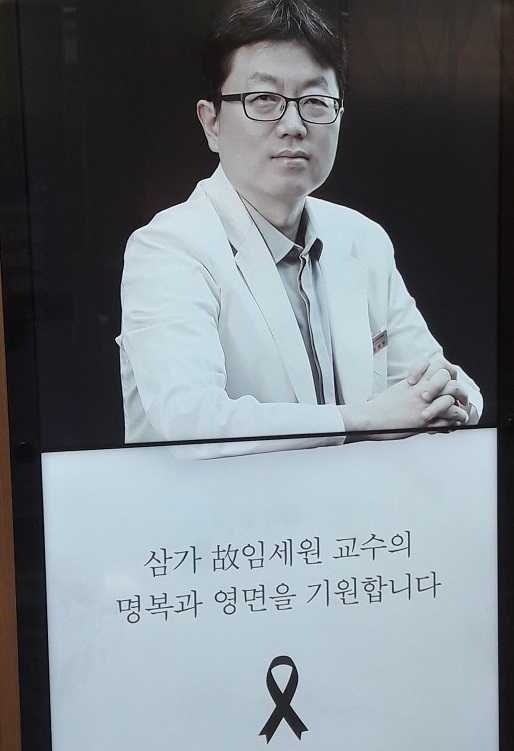Top 10 Medical News in 2019 ②

The year 2019 began with horrible medical news. On Dec. 31, 2018, Lim Se-won, a psychiatrist at Kanguk Samsung Hospital, died after a patient stabbed him during a medical consultation.
The patient visited the hospital without a reservation almost at the end of the consultation service. People found the incident all the more appalling because the doctor had little time to escape because he first helped nurses run away.
After Lim's death, physicians increasingly feared that other patients could attack them as well and shared the information of self-defense equipment to protect themselves.
In the wake of the incident, lawmakers proposed the so-called “Lim Se-won Law” to enhance the safety of medical staff in doctors’ rooms but failed to yield a meaningful result.
Pressured by the medical community, the Ministry of Health and Welfare announced follow-up measures. The government obligated large hospitals and mental health institutions to equip security facilities and workforce. The ministry also mandated patients with early-stage mental illness to receive visits for treatment by psychiatrists, nurses, and social welfare workers.
The measures did not reflect all the demands of the medical community. Still, they helped build a social consensus that doctors’ safety should be kept.
Besides Lim’s death, incidents caused by mentally-ill patients such as schizophrenic Ahn In-deuk’s arson and stabbing rampage in Jinju, South Gyeongsang Province, have stirred the Korean society.
The nation’s mental healthcare system faced criticism after news reports said Ahn’s family had tried to get him admitted to a psychiatric hospital before he committed such gruesome crime.
To prevent the mentally disordered from committing a random homicide, psychiatrists urged lawmakers to adopt a “judicial admission system” but failed to realize it.

